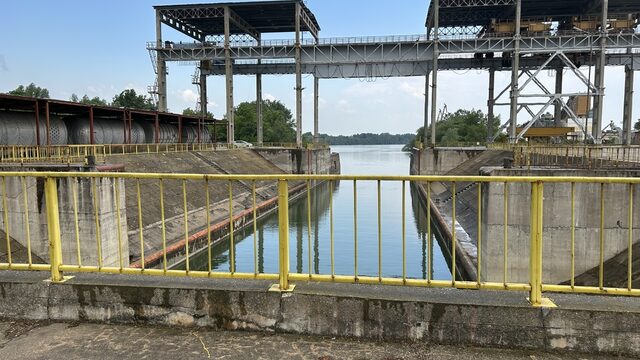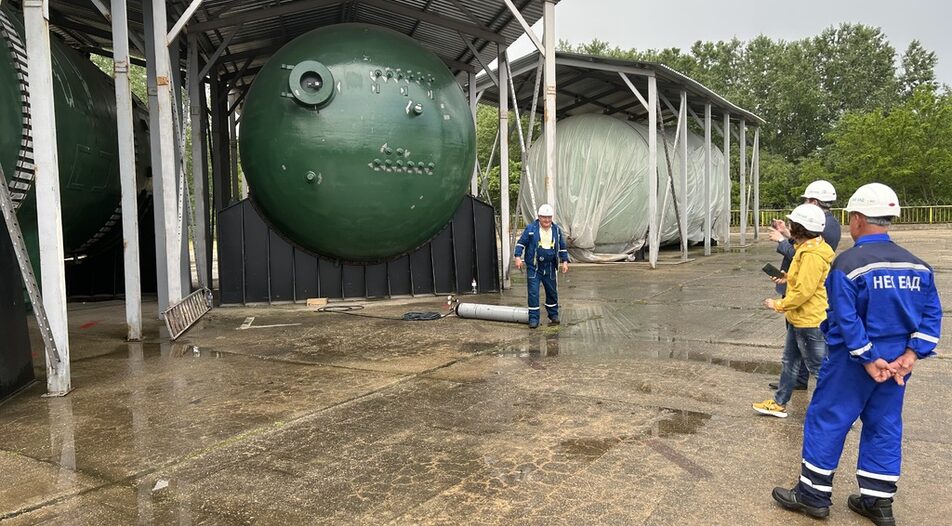The almost four decades long corruption-ridden history of the Belene Nuclear Power Plant (NPP) reached a sudden and unexpected conclusion this week. Following a proposal from GERB's Delyan Dobrev, MPs from the ruling majority, together with the MRF and TISP, decided to sell the available nuclear equipment of the unstarted nuclear plant to Ukraine. Unsurprisingly, BSP and Vazrazhdane voted against.
Formally, the decision obliges Energy Minister Rumen Radev to hold talks with the Ukrainian government within the next 60 days to sell the equipment (reactors, steam generators and pumps) at a minimum price of BGN 1.18 billion - the amount that Sofia had to pay after it lost the arbitration case with Russia's Atomstroyexport. And it also reverses a previous parliamentary decision from 2018 by which the then government of Boyko Borissov decided to resume the project.
According to Capital weekly sources, preliminary talks for the acquisition of the equipment for the Belene project have already been held with the Ukrainian side and there is a high probability that the deal will happen quickly. How exactly Ukraine would find financing for the deal against the backdrop of the war and its economic consequences is still unclear. A possible solution is for money to come through some of the international funds supporting the country, whose donors include the US, the EU and others. Of course, it is not impossible that the state-owned Ukrainian energy sector would pay the 600 million euros itself.
If the deal goes through, it will be a major advance for Bulgaria in cleaning up its energy strategy, in which the zombie Belene project has long remained a stumbling block. It will also improve the finances of the National Electric Company (NEK), which actually paid for the Russian reactors it cannot use.
Nuclear showdown
"It is very important that people understand that the equipment we have is only 10% of a future nuclear power plant in Belene. Everything else has yet to be built, which simply cannot happen until after Russia's war in Ukraine. It is as if we now have a clutch and a water pump and need a car to fit them. But the Ukrainians have everything else and that is all they lack. And they have nowhere else to order it from but us. This is a win-win situation," Delyan Dobrev MP told Capital weekly.

However, BSP and Vazrazhdane disagree and are now openly defending Russian interests. "BSP is against - it is clear that the decision is being rushed only because Zelensky is coming to Bulgaria tomorrow. What has been announced publicly is not the real reason. It aims to end the Belene issue forever. How can the government imagine that it will provide Ukraine with Russian equipment that requires Russian engineers and Russian spare parts? How will this be received by Ukraine: leaving Kyiv in Moscow's hands? Does Russia have permission for its reactors to go to Ukraine?" said BSP leader Kornelia Ninova.
For its part, Vazrazhdane accused the proposal's sponsors of selling out Bulgaria's energy sector and linked Wednesday's emergency convening of the energy committee to the upcoming visit by Ukrainian President Volodymyr Zelensky.
To be or not to be
The Belene NPP project has always been among the main indicators of the political and energy orientation of Bulgarian governments over the years. After a pause in the 1990s, the project for a new nuclear power plant was resumed by the Simeon II government, then again during the Stanishev cabinet, when there was a groundbreaking and assigning of the contracts with Rosatom.
During the GERB government, the project was first stopped (even with a moratorium), it was called a "bog" by Boyko Borissov, but then it was he who resumed it, talking about the joint participation of the Russians, the Americans and the French. Months before the first parliamentary elections in 2021, Borissov flipped the pancake again, turning his back on Belene and heading for Kozloduy NPP Unit 7.
In the past few months, the nuclear power plant project at the Belene site has been back on the table after the caretaker government of President Rumen Radev, and in particular former minister Rosen Hristov, said several times that new units at Belene are needed, along with those at Kozloduy, to achieve the country's decarbonisation goals in the coming years. It has also been announced that negotiations are underway with French nuclear operator EDF, with sources telling Capital that a contract has almost been signed.
The main problems for implementing the project with the current equipment and without the lack of a strategic investor were the cost and the commitment to Russia. With almost BGN 5 billion spent so far, at least another BGN 20 billion (at current prices) would be needed to complete Belene, and that is without considering the need to build a transmission network.
At the same time, Ukraine has a ready site that can take over the respective reactors and by selling them Bulgaria could actually get out of the situation by recovering part of the funds invested in Belene.
This is why it can be said that the possible deal with Ukraine is a very good option for the Bulgarian side, both from an economic and political point of view.
The almost four decades long corruption-ridden history of the Belene Nuclear Power Plant (NPP) reached a sudden and unexpected conclusion this week. Following a proposal from GERB's Delyan Dobrev, MPs from the ruling majority, together with the MRF and TISP, decided to sell the available nuclear equipment of the unstarted nuclear plant to Ukraine. Unsurprisingly, BSP and Vazrazhdane voted against.
Formally, the decision obliges Energy Minister Rumen Radev to hold talks with the Ukrainian government within the next 60 days to sell the equipment (reactors, steam generators and pumps) at a minimum price of BGN 1.18 billion - the amount that Sofia had to pay after it lost the arbitration case with Russia's Atomstroyexport. And it also reverses a previous parliamentary decision from 2018 by which the then government of Boyko Borissov decided to resume the project.












